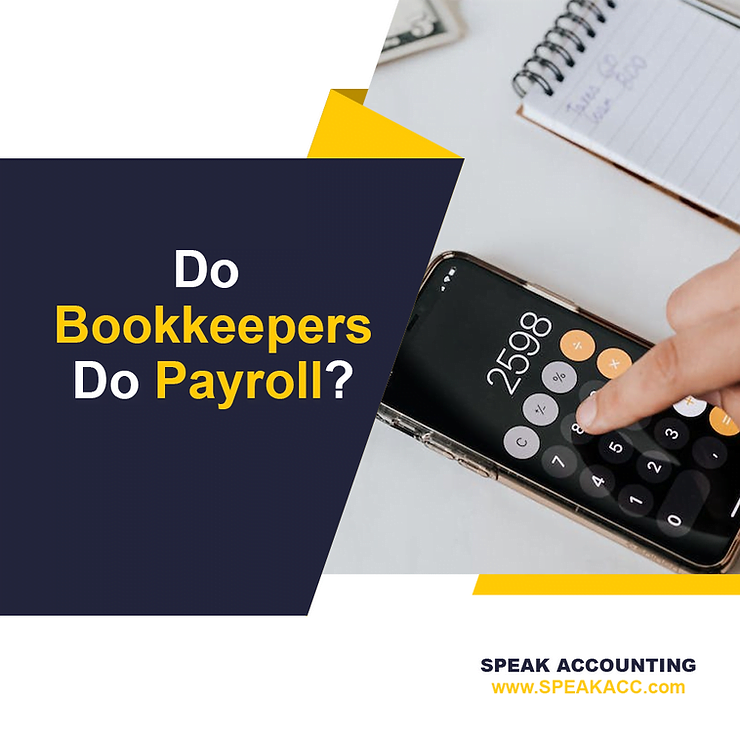Introduction
Ever thought about how bookkeepers keep businesses financially healthy? You might wonder, do bookkeepers do payroll too? We’re here to explain this and shed light on what bookkeepers actually do. In this blog post, we’ll explore bookkeeping and accounting, and how they’re connected to managing payroll information.
We’ll see how bookkeepers help with day-to-day money matters, like keeping track of what’s coming in and going out. This is super important for small businesses, making sure they have enough cash and accurate records. We’ll also talk about working with certified public accountants (CPAs) for tax returns and financial reports. So, get ready to uncover the world of bookkeepers, their role in financial transactions, and how they make sure everyone gets paid on time!
Article Content:
- Do Bookkeepers Do Payroll?
- Understanding the Role of Bookkeepers in Payroll Management
- The Symbiotic Connection: Bookkeeping and Payroll Responsibilities
- Unveiling the Truth: Can Bookkeepers Manage Payroll Effectively?
- Exploring Bookkeepers’ Involvement in Day-to-Day Payroll Tasks
- Conclusion: Navigating the Bookkeeper’s Role in Payroll and Beyond
Do Bookkeepers Do Payroll?
When it comes to managing the financial intricacies of a business, bookkeepers emerge as the unsung heroes behind the scenes. But what about the crucial task of payroll management? Do bookkeepers indeed play a role in ensuring employees get their paychecks on time?
In this section, we’ll dive deep into the responsibilities of bookkeepers and uncover the extent to which they are involved in the payroll process. Let’s demystify the connection between bookkeeping and payroll and explore the ways in which bookkeepers contribute to this essential aspect of business operations.
Understanding the Role of Bookkeepers in Payroll Management
Bookkeepers are often regarded as the meticulous record-keepers of financial transactions, diligently tracking every dollar that enters and exits a company’s accounts. But their role extends beyond just balancing the books. In this section, we’ll delve into the specifics of how bookkeepers navigate the complex realm of payroll management.
From calculating wages and deductions to ensuring compliance with tax regulations, bookkeepers play a pivotal role in maintaining accurate payroll records. Join us as we unravel the layers of their involvement and shed light on the integral relationship between bookkeeping and the seamless execution of payroll processes.
The Symbiotic Connection: Bookkeeping and Payroll Responsibilities
In the intricate dance of managing a business’s financial ecosystem, the roles of bookkeeping and payroll management are tightly intertwined. Each complements the other in ways that contribute to the overall financial health of the organization. In this section, we’ll explore the symbiotic nature of these responsibilities.
From keeping an eye on cash flow to accurately recording expenses, bookkeepers set the stage for effective payroll management. We’ll delve into how their meticulous work creates a foundation that ensures employees are compensated correctly and on time. Prepare to discover the harmonious relationship between bookkeeping and payroll that keeps businesses humming smoothly.
Do Bookkeepers Do Taxes? Unveiling Their Role
Unveiling the Truth: Can Bookkeepers Manage Payroll Effectively?
As businesses evolve and financial demands grow more complex, the question remains: can bookkeepers effectively take on the responsibility of managing payroll alongside their traditional tasks? In this section, we’ll address the practicality of entrusting bookkeepers with payroll duties.
We’ll examine the skill sets required for successful payroll management, such as attention to detail, understanding of tax regulations, and proficiency in data entry. By delving into real-world scenarios and industry insights, we’ll shed light on the challenges and advantages of expanding a bookkeeper’s role to include payroll.
Join us on a journey of discovery as we uncover whether bookkeepers are up to the task of managing this critical aspect of a business’s financial operations.
Exploring Bookkeepers’ Involvement in Day-to-Day Payroll Tasks
Beyond the realm of numbers and spreadsheets, bookkeepers play a hands-on role in the day-to-day management of payroll tasks. In this section, we’ll delve into the practical aspects of how bookkeepers contribute to payroll processing on a daily basis. From collecting and verifying timekeeping data to calculating deductions and generating paychecks, their involvement ensures that employees receive accurate and timely compensation.
We’ll also touch upon their collaboration with other financial professionals, such as certified public accountants, to ensure seamless tax compliance and reporting. By exploring the finer details of their contribution, we’ll gain a comprehensive understanding of how bookkeepers actively shape the payroll landscape.
Conclusion: Navigating the Bookkeeper’s Role in Payroll and Beyond
In the world of business finances, bookkeepers are like steady guides. They do more than just payroll – they manage money coming in and going out, handle important papers like balance sheets, and make sure everyone gets paid right. While we started by asking, “Do bookkeepers do payroll?” we’ve found out they do a whole lot more.
Bookkeepers aren’t just good with numbers; they also take care of things like keeping track of who owes money (accounts receivable) and making sure paychecks are correct when they’re handed out. They’re the ones who work on financial statements that show how well a business is doing. This helps business owners make smart choices.
Their job isn’t just one thing; it’s like a mix of skills that help businesses stay strong. The work they do affects the whole business, from big things like managing accounts payable to smaller things like keeping track of every penny.
So, remember, when we talk about a “bookkeeper’s job,” it’s much bigger than we might think. They’re the quiet heroes who help businesses grow and succeed. As we finish up here, let’s give a nod to these unsung heroes who work behind the scenes, making sure everything adds up and businesses thrive.



